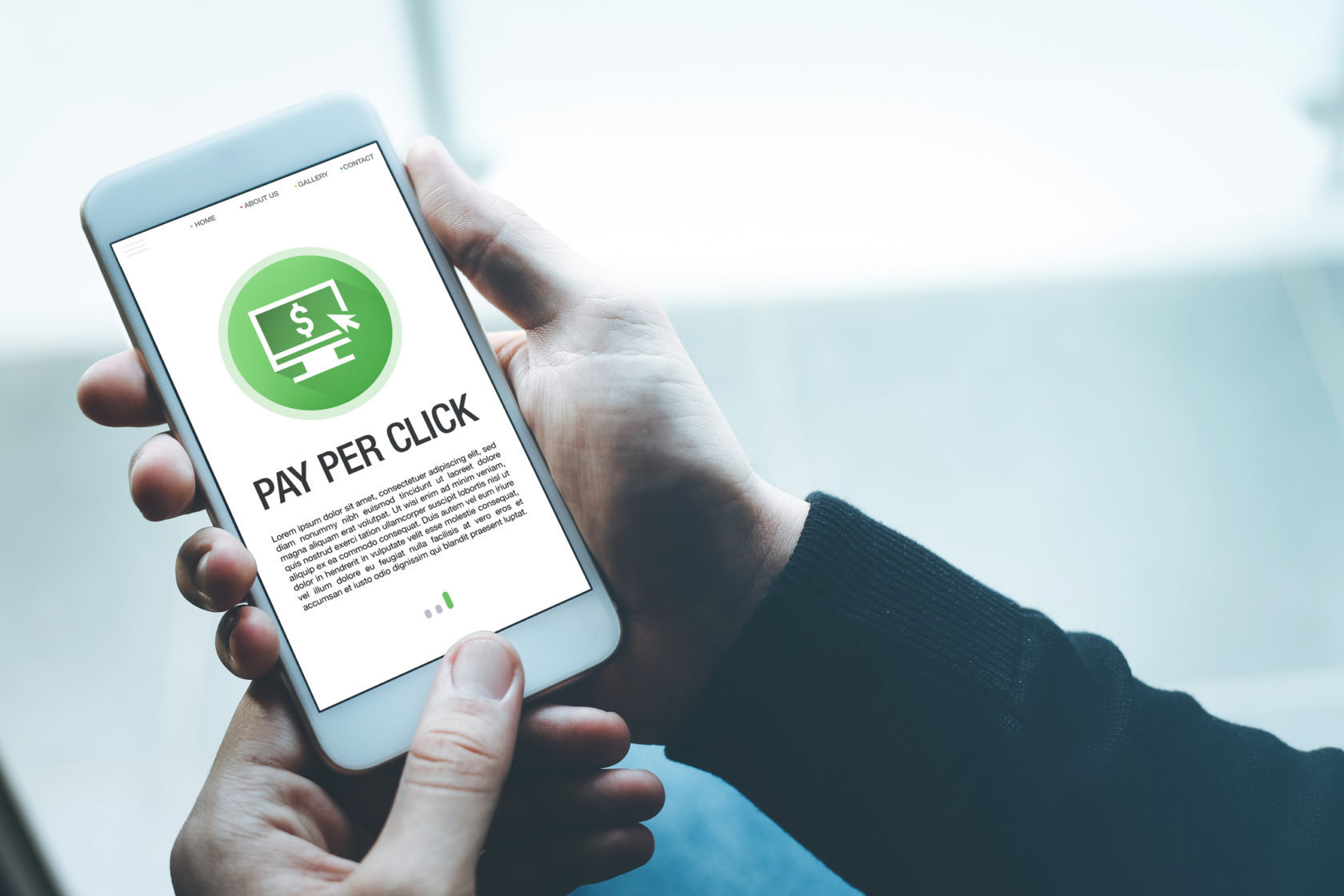What does PPC mean?
There are a lot of abbreviations in the world of marketing that, at first glance, seem complex and headache inducing: SEM, SERP, PPC. But once you’ve gained a better understanding...
Filter by Category

There are a lot of abbreviations in the world of marketing that, at first glance, seem complex and headache inducing: SEM, SERP, PPC. But once you’ve gained a better understanding of some of these terms, it’s easier to view them less as stressful words and more as powerful tools for your business.
Below, we’re breaking down what PPC means and why it’s a useful form of marketing for small businesses.
PPC stands for Pay-Per-Click and is a form of paid marketing. Using this online advertising model, advertisers will place an ad on an ad platform, like Google, and only pay when users click their ad. These ads can be search ads, display ads or even remarketing.
The process of placing an ad on one of these platforms begins with a keyword bidding process. Used correctly, these ads will then show up in the sponsored section of the search results and will place your business directly in front of potential customers. Simply put, PPC means you’re essentially paying a small fee for every visitor to your website in hopes that they will make a purchase.
FYI, PPC differs from social media ad buys, which operate on stand-alone social platforms. Think Facebook, Twitter and LinkedIn. They are not search engines, even though they have tons of content and are themselves highly searchable. In short, PPC involves buying ads on search engines and on Internet-based websites accessible through search engines. For information on social media ad buys, see our article on How to run a Facebook advertising campaign.
If you want a higher conversion rate on your website, PPC is the way to go. Many small businesses utilize PPC because it leads potential customers directly to their website or landing page when they’re at a crucial stage of the buying process. They’ve already decided that they’re ready to purchase a product like yours, now they’re just searching for the best one. Ensuring that your business will show up during this stage will lead to a higher chance that the potential customer will convert once they’re on your website.
First, advertisers must determine the perceived value of a click to their website. How much is each customer visit worth, assuming they make a purchase? How much are you willing to risk if they don’t? Determining this value can be done by figuring out the most relevant keywords for your business as well as the criteria for the audience you’re trying to reach.
The keywords are related to the search terms that you want your business to show up for. For example, if you own a pizza restaurant in Austin, you would likely bid on a search term like “best pizza in Austin.” Luckily, you don’t have to guess what people are searching for. There are several keyword planning tools out there that can help you determine the best keywords and average cost per click.
Next, an ad auction will take place. During the ad auction, advertisers will bid on the keywords that are most relevant to their business. The ad platform will then determine how relevant each ad is using an automated process that takes into account keyword relevancy and the validity of the business. Although they’re getting paid by advertisers, search platforms still want to ensure that their users aren’t being spammed by irrelevant advertisers.
While this post only scratches the surface of PPC and paid search, it’s enough to give you a better idea of what PPC is and how it can be used for small business. As long as you have a solid understanding of your audience and what they are searching for, PPC can be a valuable tool for any small business wanting to increase their website traffic and make more sales.
About Dave Manzer: Dave is founder and managing principal at Swyft, a B2B tech PR firm and digital marketing agency with offices in Austin, San Francisco, Denver and Houston. Swyft specializes in helping tech companies with a variety of services including public relations, marketing automation, website design, SEO, and much more.